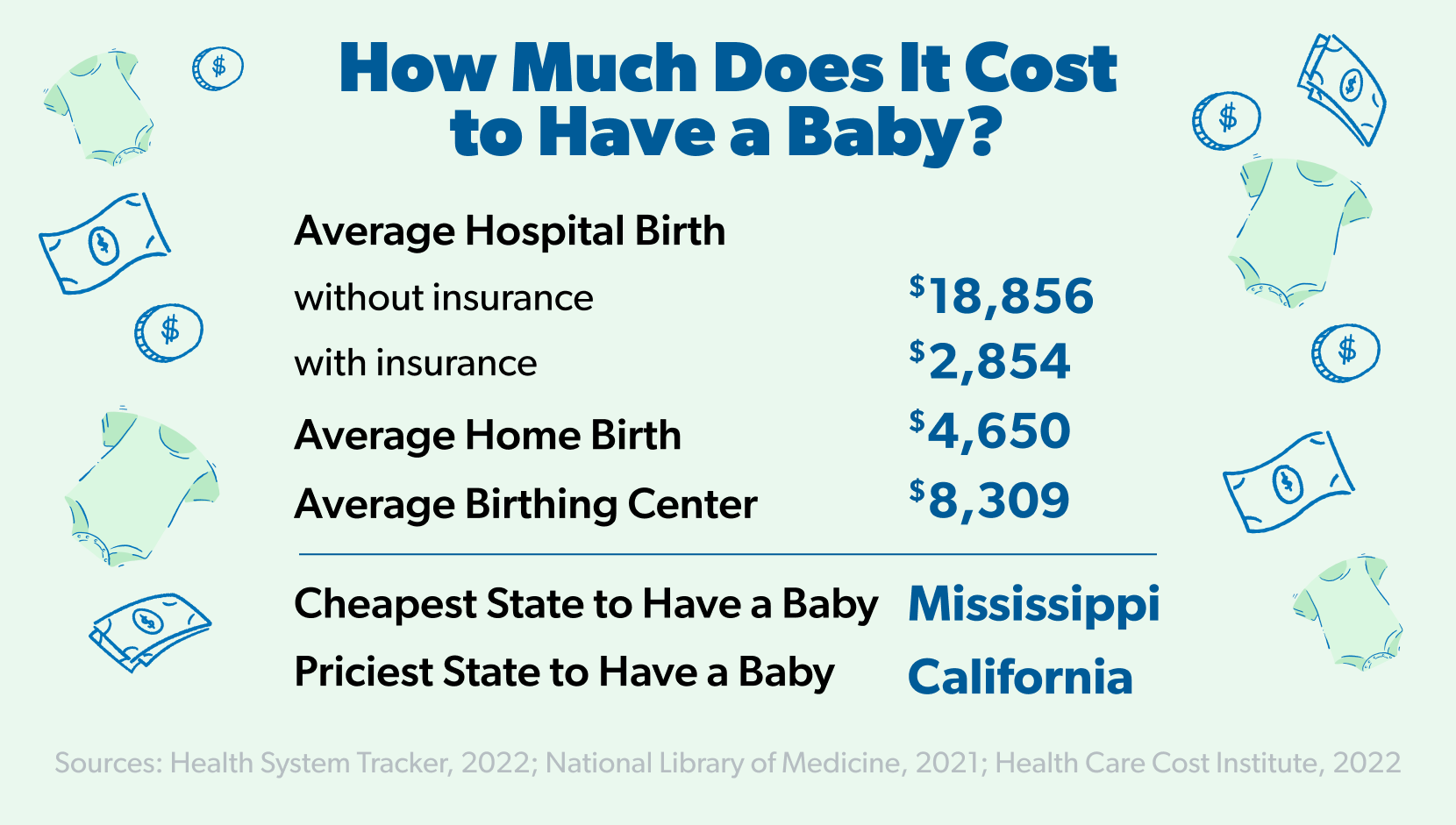
The Financial Burden of Baby Care: A Comprehensive Guide to Costs
Welcoming a new baby into the world is an undeniably joyous occasion, but it also comes with a significant financial responsibility. From prenatal care to diapers and daycare, the expenses associated with raising a child can quickly add up. This article aims to provide a comprehensive overview of the costs involved in caring for a baby in the United States, empowering prospective and current parents with the knowledge they need to make informed decisions.
Prenatal Care and Delivery
The journey of parenthood begins with prenatal care, which includes regular doctor’s visits, ultrasounds, and blood tests. The average cost of prenatal care in the US ranges from $2,000 to $10,000, depending on the type of insurance coverage and the number of visits required.
The cost of delivery can vary widely depending on the hospital, the type of delivery, and whether or not there are any complications. A vaginal delivery without complications typically costs between $10,000 and $15,000, while a cesarean section can range from $20,000 to $30,000.
Baby Essentials
Once the baby arrives, a plethora of essential items are required to ensure their well-being. These include:
- Diapers: Newborns go through an average of 10-12 diapers per day, which can cost around $50-$100 per month.
- Wipes: Baby wipes are essential for diaper changes and other cleaning tasks. A pack of 100 wipes costs around $5-$10.
- Formula: If the mother is unable to breastfeed, formula is necessary to provide the baby with essential nutrients. A can of formula costs around $20-$30 and lasts for about a week.
- Clothing: Babies grow rapidly, so parents need to purchase new clothes frequently. A basic wardrobe can cost around $200-$500.
- Car seat: A car seat is essential for transporting the baby safely. A quality car seat costs around $100-$300.
- Crib or bassinet: A safe and comfortable sleeping space is crucial for the baby’s development. A crib or bassinet costs around $100-$500.
Healthcare
Regular checkups and vaccinations are essential for the baby’s health. The cost of healthcare can vary depending on the insurance coverage and the specific services required. On average, parents can expect to spend around $1,000-$2,000 per year on healthcare expenses for their baby.
Childcare
For working parents, childcare is a significant expense. The cost of childcare varies widely depending on the type of care, the location, and the age of the child. In the US, the average cost of childcare for an infant is around $1,000-$2,000 per month.
Other Expenses
In addition to the major expenses listed above, there are numerous other costs associated with raising a baby, including:
- Toys and entertainment: Toys and books are important for the baby’s development and entertainment. Parents can expect to spend around $50-$100 per month on these items.
- Food: Once the baby starts eating solid foods, parents need to purchase a variety of healthy options. The cost of food for a baby can range from $50-$150 per month.
- Diaper bag and accessories: A diaper bag is essential for carrying all the baby’s essentials. Parents can expect to spend around $50-$100 on a diaper bag and accessories.
- Stroller: A stroller is necessary for transporting the baby around. A quality stroller costs around $100-$500.
Total Cost
The total cost of caring for a baby in the US can vary significantly depending on the individual circumstances and lifestyle choices. However, based on the estimates provided above, parents can expect to spend an average of $10,000-$15,000 per year on baby care expenses.
Financial Planning
Given the substantial costs associated with raising a baby, it is crucial for prospective parents to plan financially. Here are some tips for managing baby care expenses:
- Create a budget: Track your income and expenses to determine how much you can afford to spend on baby care.
- Explore financial assistance: There are various government programs and non-profit organizations that provide financial assistance to families with children.
- Consider a part-time job: If possible, one parent may consider working part-time to reduce childcare expenses.
- Shop around for childcare: Compare prices and services from different childcare providers to find the best option for your budget.
- Take advantage of discounts: Look for discounts on baby essentials at stores and online retailers.
Conclusion
Raising a baby is a rewarding but financially demanding endeavor. By understanding the costs involved and planning accordingly, prospective and current parents can ensure that they are well-prepared to provide their little one with the best possible care. Remember, the financial burden of baby care is temporary, and the joy and love that a child brings into your life is priceless.
